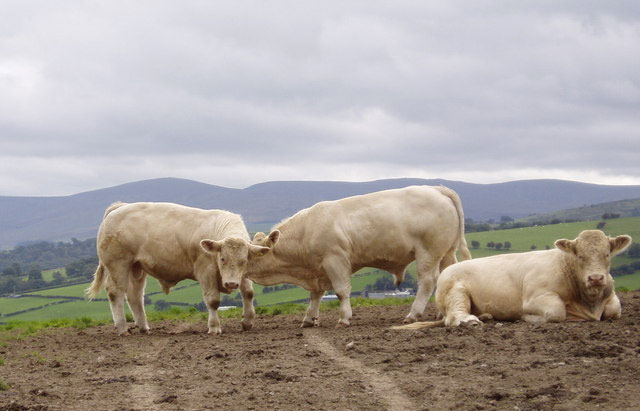
Scottish farmers’ share of the retail price of beef is at its lowest level for almost five years.
Farmgate prices for beef cattle hit record levels in November last year but have tumbled dramatically by almost £250 per head in the past 8 months. Current price levels means that those currently finishing cattle for the market are likely to be struggling to break even.
Retail figures show that the average price for beef on shop shelves sat at 557p per kilo at the start of 2010 and has risen steadily to 709p per kg in July of this year. However, the farmers’ share of the retail price has, in the past year, fallen from 62 percent to less than 48 percent.
Given that supermarkets are now securing a far greater share of the margins from beef, the Union has called on them to act more responsibly or risk undermining future supplies of this iconic product.
NFU Scotland President Nigel Miller said: “For the primary producer to receive less than half the retail value of beef is totally unacceptable given the amount of time, cost and risk taken on by Scottish beef farmers in getting this premium product to market.
“From conception to being ready for the market, a beef animal’s journey can take over three years. Compare that lengthy commitment with the meat maturing for three to four weeks in an abattoir and then spending two or three days on a shop shelf.
“It was inevitable that farmgate prices would adjust from the historic highs seen just under a year ago but we have concerns that the price correction is now being exploited by retailers – using lower prices for cattle and higher retail prices to consumers to squeeze more margin out of the market for themselves.
“That margin grab is a double edged sword. Figures show that the public expenditure on beef is broadly static. Given that retail prices are going up, that means the public are taking home less beef. It would be a far more positive approach were retailers to use that increased margin to more fairly reward producers at the sharp end and more actively promote Scotch beef to the consumer to help grow the market. That would benefit the whole beef chain and grow the market.
“This short-term mind-set of major retailers, where immediate profit drives the decision-making process, runs the risk of pushing cattle off Scottish farms and reducing the supply of our iconic grass-fed product.”
